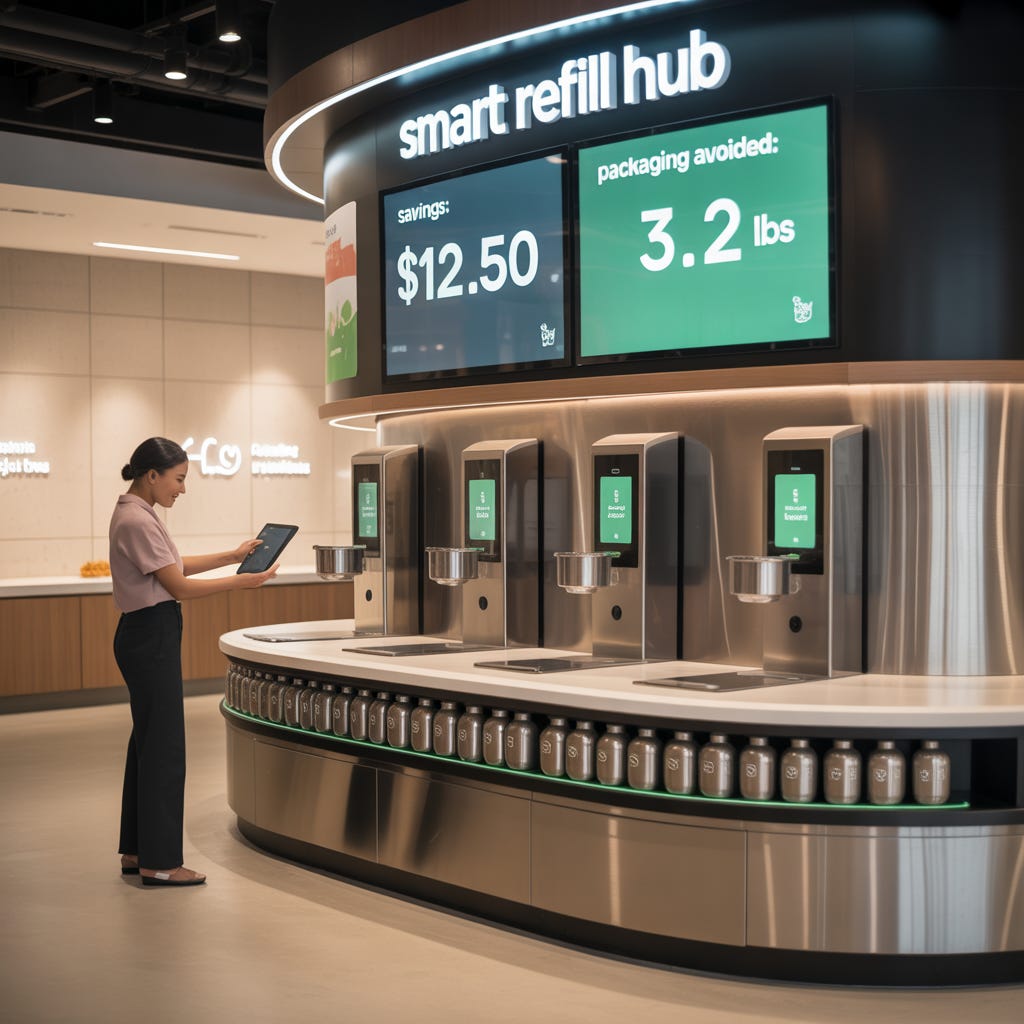🏷️ The Scoop: When Bulk Bins Built the Ritual of Refill
From barrels and brown paper to gravity bins and smart dispensers, refilling turned shopping into stewardship.
Long before shrink-wrap and single-serve ruled the aisle, shopping was measured by the scoop. Flour, sugar, beans, coffee - dispensed from barrels into jars, tins, or paper sacks -n made the grocer’s counter feel more like a workshop than a warehouse. Over time, that humble ritual - scoop, weigh, pay - evolved into a strategy: lower waste, tighter budgets, fresher goods, and a quieter pride in bringing containers back for another round.
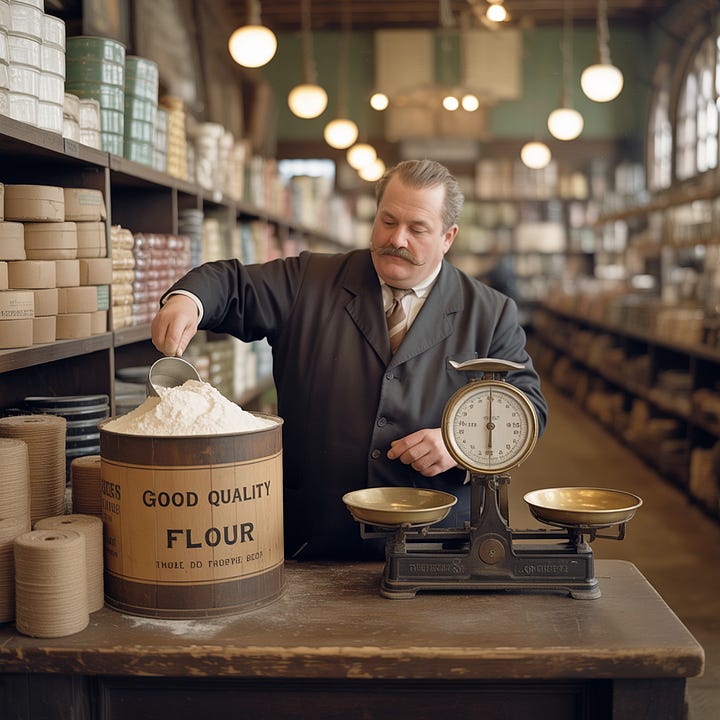
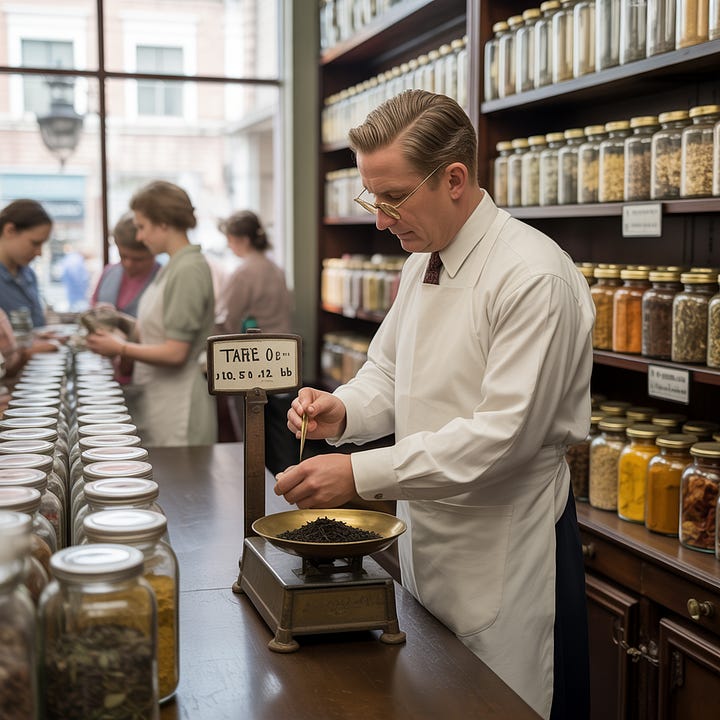
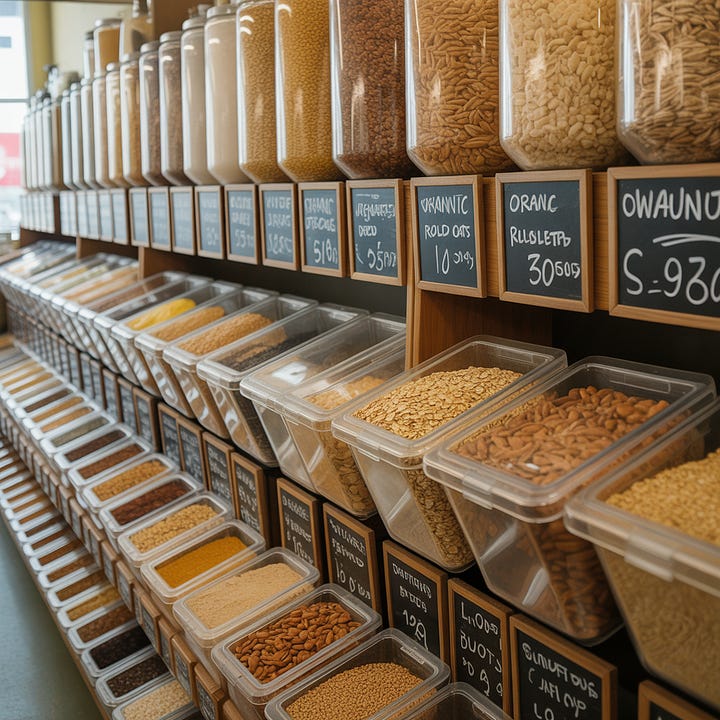
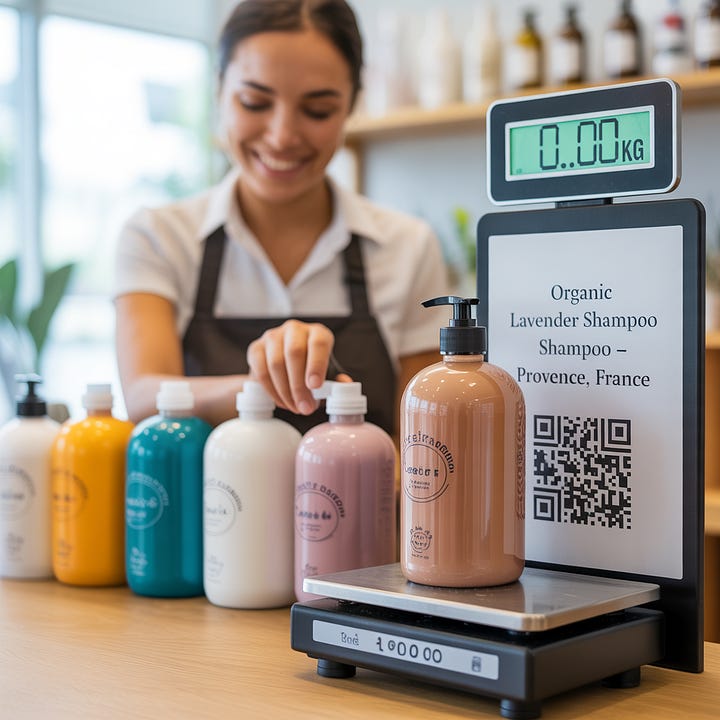
🛢️ Where Did It Begin?
In the 1800s general store, abundance lived in barrels and bins. The shopkeeper knew your family and your usuals, measured by scoop and scale, and twined bags shut with a practiced flick. Apothecaries did the same with herbs and powders; tea and coffee merchants dispensed by weight, not brand. Markets across Europe and the Americas ran on refill logic: bring a jug for oil, a tin for biscuits, a jar for sweets.
As railroads and wholesalers expanded, bulk stayed practical - molasses in casks, kerosene in cans, staples stacked in open crates - until packaging and advertising began to shift power to national brands.
A surprising detail: Early “tare” practices - deducting the weight of your container - were handwritten in ledgers, a small but vital courtesy that made refill fair.
💡 Why Did It Matter?
Bulk wasn’t just quaint; it was economical, flexible, and communal. Families could buy what they needed - and only what they needed—stretching budgets without committing to a fixed package size. Merchants reduced backroom waste and showcased freshness with sight and smell.
Budget control: Buy to the spoonful or the sack; precision kept pantries full and wallets intact.
Freshness & variety: Turnover stayed high; spices, grains, and nuts invited try-before-commit.
Trust & community: Weighing in the open built confidence; the counter doubled as conversation.
🔄 How Did It Evolve?
Mass packaging surged in the early 20th century, promising hygiene and convenience - and branding. Bulk retreated but never vanished. Natural food co-ops in the 1970s revived bins for grains, nuts, and coffee, linking refill to frugality and values. Supermarkets followed with gravity bins (safer than scoops), price-per-ounce signage, and candy walls that made self-serve irresistible. Warehouse clubs amplified “bulk” differently - large formats, not open bins - while refill culture found new categories: soaps, detergents, personal care.
By the 2010s, zero-waste shops, refill stations, and concentrated tablets (just add water) reframed bulk as sustainability in action. Digital scales printed tare labels; apps tracked refills and savings; some retailers piloted returnable packaging loops that circulate containers like library books.
Early 1900s: Packaged brands rise; bulk recedes.
1970s co-ops: Bins return—values-driven and budget-wise.
1990s–2000s: Supermarket gravity bins, warehouse “bulk,” refill for household goods.
2010s–Now: Zero-waste stores, on-shelf refill stations, loops and concentrates.
🌟 The Echo Today
Refill is now strategy, not nostalgia. Leading grocers and specialty retailers integrate tare scales, QR-linked ingredient transparency, and staff-led sampling to keep bulk inviting and safe. Beauty and home-care brands pilot in-store refill fountains and pouch returns; coffee shops normalize bring-your-own. Apps nudge re-ups based on past usage, and loyalty programs reward container reuse like points for steps.
Design for reuse: Clear workflows - tare, fill, weigh - reduce friction and spills.
Data & trust: Labels show origin, allergens, and freshness dates; QR codes log your refill history.
Broader categories: From oats to shampoo, olive oil to laundry tabs - bulk crosses aisles.
🕊️ What’s the Lesson?
Refill turns shopping from transaction into habit. When retailers design for reuse - clean, clear, and genuinely cheaper - they earn loyalty with every scoop. Less packaging, more trust, better margins: stewardship that sells.
🕰️ Echoes of Commerce



